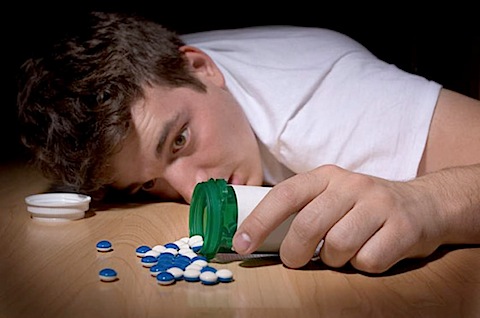Note from CCHR: Several years ago, NBC interviewed a group of high school kids that were recreationally using drugs like Ritalin, Adderall and Concerta. They asked the kids why they would risk using drugs that the US Drug Enforcement Administration (DEA) classifies as a schedule ll drug, in the same highly addictive category as cocaine, morphine and opium. Drugs that have severe side effects including death. The high school kids answer? ‘We figured since they’re given out to 6-year-olds, how bad can they be?’
Enough said.
Popping pills won’t improve grades, warns Canadian medical journal
 Toronto Star – September 6, 2011
Toronto Star – September 6, 2011
by Theresa Boyle
Universities and colleges must crack down on illicit use of Ritalin and other stimulants, which are not the grade boosters many assume, an editorial in the Canadian Medical Association Journal urges
“Students who think simply popping a pill will improve their grades or give them new-found academic abilities are sorely mistaken,” says the editorial released online on Tuesday.
Students use stimulants like Ritalin and Adderall because they are perceived to boost to academic performance through enhanced attention and alertness. But these supposed benefits are not reality based, but are part of a “pervasive myth,” the CMAJ charges.
The vast majority of evidence shows that stimulants offer no cognitive improvements over placebos in healthy individuals.
Those who abuse these drugs seem unaware of the potential dangers. While data on the impact of these drugs on healthy individuals is sparse, studies show that inappropriate use by those diagnosed with attention deficit hyperactivity disorder (ADHD) can lead to death, life-threatening hypertension, irregular heartbeat, overdose, addiction and depression.
An overdose can result in symptoms seen in abuse of amphetamines and cocaine, including severe hypertension, abnormally high fever, rapid heartbeat, severe agitation and psychosis.
Effects can be more pronounced in those who snort or inject stimulants, the editorial warns.
The CMAJ calls on universities and colleges to create education campaigns that debunk myths and expose risks.
Post-secondary institutions should also try to identify and address the root cause of stimulant abuse, the journal says. It’s plausible that unhealthy competition or “play-hard-work-hard” attitudes prevail, the opinion piece says. Clear expectations, peer mentorship, additional resources and a more structured environment may encourage proper study habits. Programs that help integrate students living away from home for the first time would also be helpful.
“We must remember that the majority of students who inappropriately use these medications have good intentions but may simply need reliable information or resource to make good choices.”
Universities should have a self interest in addressing the problem because they could be held legally liable for the consequences of stimulant abuse, the editorial cautions.
It also calls on campus health clinics to look out for students may have undiagnosed ADHD. It’s possible they may be self medicating. The clinics should warn students who are prescribed these drugs about repercussions of selling any “excess” supply.
“Like doping in sports, abuse of stimulants by our best and brightest students should be denormalized by being viewed as cheating or substance abuse, pure and simple,” the editorial says.

